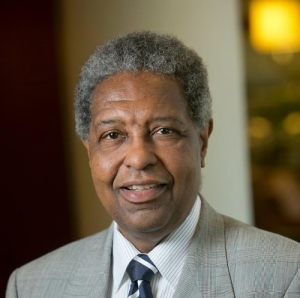By Katie Reilly May 5, 2022
Nile Blass remembers hearing about Georgetown University’s 2016 report on its historical connections to slavery before she even applied to the school. The report, which detailed how the university profited from the sale of 272 enslaved people in 1838, recommended steps for the university to atone for its role. For Blass, it became a factor in her decision to enroll at the university, which she saw as “an educational institution where a Black student like myself could thrive.” “If they’re dealing with their history in this capacity,” Blass remembers her family thinking, “that means that they’re doing something above and beyond, and that can probably spell something positive for the campus culture.” But while Blass, now a graduating senior, did thrive on campus, she has also spent the last four years pressuring the university to do more to repay descendants for what was taken from their enslaved ancestors. “The existence of these individuals and their work [permeates] the entire Georgetown experience, even if you’re not directly looking for it. That’s a debt owed,” says Blass, who was, until recently, the school’s student body president. “There is direct economic harm to be found there.” … William Darity, a public policy professor at Duke University who studies racial inequality and the economics of reparations, notes that most universities that have studied their own historical involvement with slavery have not gone much further in their responses than renaming buildings, removing Confederate statues, or erecting memorials to the contributions of enslaved people. But, while he says those moves just scratch the surface of what would be a commensurate response, he believes such a solution won’t be found in a piecemeal approach from a handful of universities. “I don’t think that colleges and universities or private donors actually have the capacity to meet a full-scale plan for reparations,” he says, adding that he would like to see universities use their influence to advocate for a federal reparations plan that would help to eliminate the longstanding racial wealth gap across the country. “If they truly feel a sense of obligation, given their history, then what they should do is actually pursue having a national program of reparations, and they should use their clout and influence to make that happen,” Darity says.

